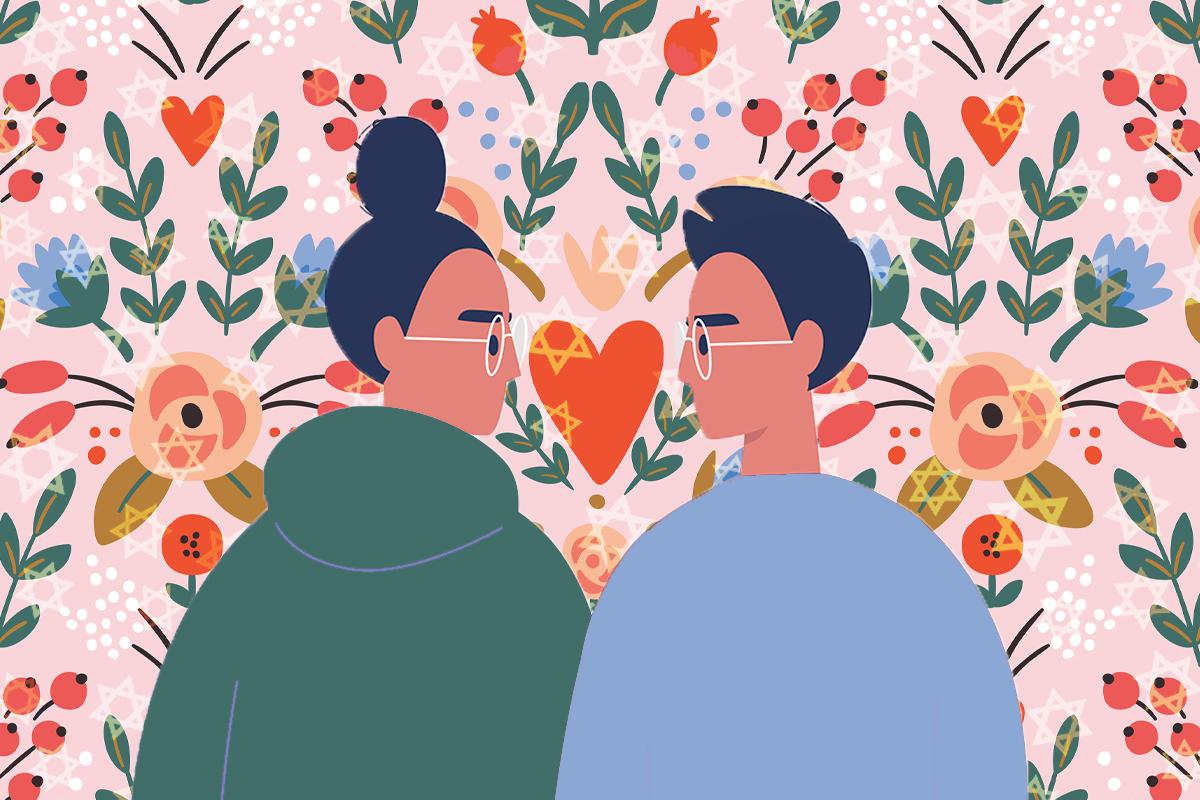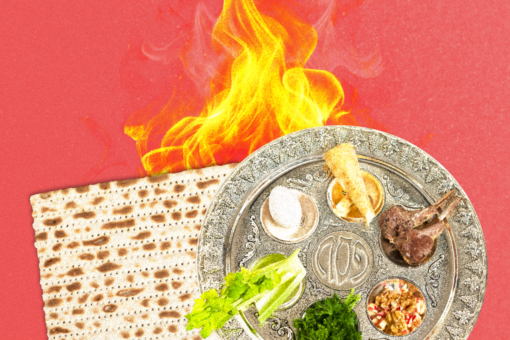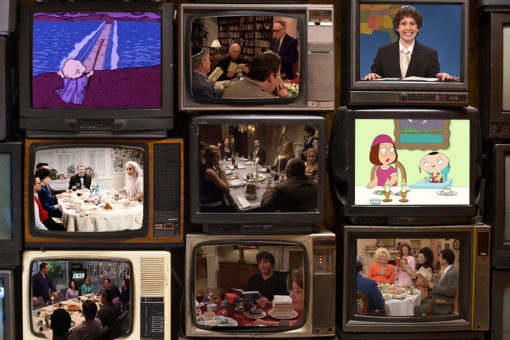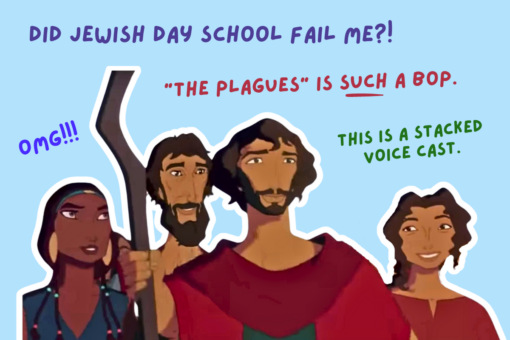There is something uniquely isolating that comes with only learning your identity nearly 18 years into your life. My ancestors worked tirelessly, it seems, to give my family a fresh start in America, and they succeeded — but what followed was a certain naivety of my own heritage that only came to light when my family and I participated in gene testing.
At this time, my grandmother was in the throes of metastatic breast cancer, which we later learned was in fact related to what we would find out in our testing results: Ashkenazi Jewish.
I had never before heard these words mentioned in regards to my ancestry. It was a shock to each and every family member I questioned about it, and after generations of family members passing away early, we had no idea where and when this began to be ignored. Regardless, I was given a gift with this knowledge: the ability to begin acknowledging it again. This prospect fascinated me, and I began doing my research.
However, Judaism is not the easiest identity to come to late in life. I learned this through my lack of a bat mitzvah, knowledge of prayers, and my altogether ignorance of religion in general, since my family grew up as agnostic wanderers. It was initially discouraging, but everything changed when I visited my grandmother for the last time.
I sat beside her hospice bed after grabbing one of the many cookbooks from her shelves. I began reading her recipes from a large white one entitled Jewish Cooking in America. She had had this book my entire life; I just never knew. After we had found out our ancestry, I remember going to her with many questions regarding what she knew about the family’s Jewish history. She apologized, saying her parents had been secretive about such topics in their plight to better assimilate to the American culture.
I understood, but as I read her the Manfred Loeb’s Six-Braided Challah recipe, I could swear I felt her hand hold mine tighter. She wasn’t able to verbalize it at the time, but I knew what she was trying to tell me. This was now my world to explore.
Months later, recovering from a terribly abusive relationship and the effects of a global pandemic, I joined the dating apps. Expecting to find some comfort or just distraction, I swiped right and suddenly and unknowingly began a relationship that would restore my hope in romance, but also my ability to be a Jew.
David. 20. BLM. Jewish. Ideal first date: wine and cheese on the beach.
Irresistible. I message him with the classic: “BLM and Jewish? When’s the wedding?” and we get to talking. His first question regards my own Judaism, and I confess that I’ve only recently been able to explore it. He proceeds to respond with a list of resources I might enjoy looking into in the area. And that’s that. I’m hooked.
I decided to make a loaf of challah on our first date from the recipe in my grandma’s cookbook. It was the worst baked item I have ever laid my eyes on. It had a miraculous ability of absorbing every drop of moisture in your mouth, leaving you miserable if you didn’t have water on hand. Obviously, I was incredibly embarrassed, but it was made worse when he told me he had brought the rest home to his family who had used it for Shabbat the next night. There was no physical way I could appear less Jewish than letting a practicing family use my dense-as-a-brick challah to say a prayer over.
Somehow, they pardoned my brick challah and invited me to the next Shabbat dinner. I spent all week practicing the candle lighting prayer, and I spent the day sorting through my closet in hopes of finding the perfect outfit. When I arrived, my boyfriend was in basketball shorts and a t-shirt, and his mother welcomed me with a piece of dark chocolate. Regardless of my nerves, I lit a candle with his family and said my baruch ata with childlike grace . That time, I made a challah that was not only edible, but enjoyable.
Back on our first date, my boyfriend and I had discussed what we personally wanted in terms of raising children. Although I do not recommend bringing this topic up on most first dates, it was here specifically that I was able to begin my daydreams of raising a Jewish family with him. He knew my inexperience with both the ethnicity and the religion, but when I told him that I wanted to learn more, he simply comforted me.
“Sure, you started later,” he told me, “but that doesn’t matter. You’re a part of the club regardless.”
That was what made me comfortable trusting him with each and every part of me, no matter how vulnerable I felt doing so. That is the story I hope to tell our kids in a decade. And most importantly, that was what made me confident enough to walk into his family’s home adorned with Stars of David and a drawer full of kippahs for our first Shabbat.
I was incredibly lucky to find a person who doesn’t mind teaching and doesn’t mind hearing my sub-par Hebrew, but there is still the imposter syndrome that rears its ugly head from time to time. It can happen during the holidays, or when I’m just introducing myself as Jewish. I start to doubt if I have a right to claim it, if my lack of knowledge and familiarity means I’m not really Jewish, after all. I know it will take some time to feel truly accepted, but at least in the meantime, I have my boyfriend and his family, welcoming me with open arms and endless gefilte fish.



